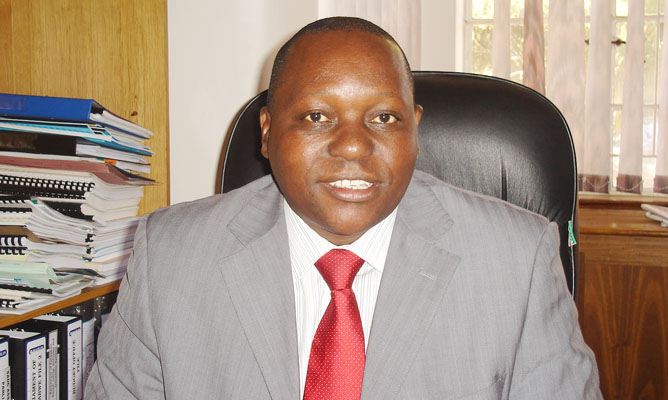
We have reached that time of the year when the formulation of the national budget gathers momentum. The Portfolio Committee on Finance and Economic Development will, from October 5 – 9, conduct public hearings in the country’s provinces to solicit citizens’ views on the 2016 national budget.
This will be followed up by the annual pre-budget seminar attended by government ministers, government officials and members of parliament in early November.
The hearings and pre-budget seminar are aimed at strengthening Parliament and citizens’ role in the formulation of the national budget. But the burning question is: To what extent are these consultations meaningful? Are there any tangible outcomes from these consultations or they are a sheer waste of taxpayers’ money? This article will try to answer that question and proffer suggestions on how to strengthen parliamentary involvement in the budget process.
It is important for the Finance and Economic Development Portfolio Committee to conduct public hearings in fulfilment of section 28 (5) of the Public Finance Management Act. This provision says “the minister may, through the appropriate portfolio committee of Parliament, seek the views of Parliament in the preparation and formulation of the annual budget, for which purpose the appropriate portfolio committee shall conduct public hearings to elicit the opinions of as many stakeholders in the national budget as possible”.
This provision is also in line with section 13 of the Constitution, which compels the State to involve the people in the formulation and implementation of development plans and programmes that affect them. The Finance and Economic Development Portfolio Committee is, therefore, fulfilling constitutional and statutory requirements.

However, the public hearings conducted by the parliamentary committee assume that people out there are ready to make submissions on the national budget. This is a totally wrong assumption. People lack basic economic literacy to be able to make meaningful submissions on the national budget. This is why participants at some of the hearings in the past ended up speaking on issues that have nothing to do with the budget.
Parliament should, therefore, issue and widely publicise guidelines on budget submissions in order to assist citizens to prepare adequately for the hearings. The guidelines can include such issues such as the 2016 budget macroeconomic framework, expenditure prioritisation across sectors, recurrent versus capital expenditure, sources of revenue, how to make the budget gender-responsive, how to make the budget rights-based and pro-poor, among others.
- Chamisa under fire over US$120K donation
- Mavhunga puts DeMbare into Chibuku quarterfinals
- Pension funds bet on Cabora Bassa oilfields
- Councils defy govt fire tender directive
Keep Reading
Submissions on the macroeconomic framework should focus on what civil society and other interest groups forecast in terms of GDP growth, inflation developments, revenue projections, public debt, and other assumptions underpinning the budget. The importance of making submissions on the budget macroeconomic framework is that it is the one that determines the resource envelope. Submissions should also assess the performance of the 2015 Budget with a view to inform the preparation of the 2016 Budget. The Mid-Term Fiscal Policy Statement and quarterly financial reports from ministries can provide pointers to this assessment. If proposals envisage a budget deficit, then clarity must be provided on how that deficit shall be financed.
Submissions should propose percentage allocation to capital and recurrent expenditures. Examples of public sector projects to be funded from the capital budget can be proposed. Submissions should also propose measures to address the perennial problem of unsustainable recurrent expenditures. The recurrent budget itself should be further explored in order to propose percentage allocations between salaries and wages and the operational budget.
The sources of revenue (both tax and non-tax revenue) should be analysed and measures proposed to raise adequate revenue to finance proposed expenditures. The measures should promote economic sustainability.
Stakeholders can also evaluate the current policy and legal framework governing the budget process and public finance management with a view to propose changes where necessary. The reports of the Auditor-General can also inform submissions on how to strengthen public finance management in Zimbabwe.
The pre-budget seminar in Victoria Falls is a very expensive gathering because of the hotel accommodation, air fares and other allowances paid to the over 200 guests. The huge financial outlay can be justified if the MPs speak with one voice on their expectations for the 2016 national budget. Furthermore, the seminar must be held much earlier during the process of formulating the budget and not at the tail end of the process.
While budget formulation is largely the preserve of the Executive, the seminar allows Parliament to engage ministers and senior government officials on the budget process and contribute to its formulation. The programme for the pre-budget seminar must therefore be designed properly in order to promote robust engagement and meaningful participation by the legislative branch in the budget formulation process.
The thrust of the programme must be to allow the portfolio committees to lead discussions on priorities for the budget informed by the consultations that these portfolio committees would have carried out with relevant stakeholders. Proposals from portfolio committees should also be informed by the strategic plans of line ministries, quarterly financial reports from ministries; auditor-general’s reports and other relevant reports. Ministers must be the respondents to the portfolio committee reports.
Some kind of budget and economic literacy training must be conducted for the MPs before they go and attend the pre-budget seminar. The training session can focus on the following: importance of the national budget; the budget process in Zimbabwe, the key players and best practices elsewhere; key terms in budgeting; budget structure; gender budgeting; and rights-based budgeting. The seminar will assist MPs to make focused and more informed contributions during the pre-budget seminar.
Without such budget and economic literacy training, then the gathering in Victoria Falls will become another talk shop and a sheer waste of limited public resources.
l John Makamure is the executive director of the Southern African Parliamentary Support Trust. Feedback: [email protected]











